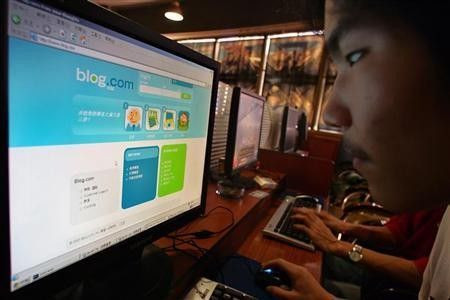China Reviews A New Internet Policy That Could Cut The Appeal Of Weibo And Similar Micro-blogging And Social Media Sites

China's already heavily regulated Internet may become even more strict. In an effort to avoid digital anonymity, China is considering implementing a policy that will require real name registration for Internet use under the "Internet Information Protection Guidelines" proposal.
China's seven top leaders, known as the Standing Committee of the National People's Congress (NPC) and which includes Xi Jinping and Li Keqiang, convened Monday to discuss what the proposed policy would entail.
According to Caixin, a Chinese news outlet that publishes in English, the policy will require Internet users to register under their real names, especially for sites like Weibo, a popular social media and micro-blogging site, and crackdown on Internet scams and junk mail, among other things. According to Li Fei, the deputy director of the NPC's Law Committee, the requirement of real name registration is China's way of being able to keep tabs on its users and "enhance identity management of internet users."
Protection of personal information seems to be at the forefront of concern for Chinese Internet users. After a story of a fatal attack on a woman earlier this year, who was followed and killed after her address was publicized after she ordered items online, concerns over information leaks are high.
Though the increased use of real-name information may seem to increase the growing problem of Internet scams using leaked personal information, China's government-controlled media agency Xinhua reports that the new policy will increase security and hold those behind the scams more accountable. The draft stipulates that commercial messages cannot be sent without the consent of the receiver, curbing the amount of spam that will be in circulation.
Because the bill would require internet based companies to publicize information when necessary, the government's ability to keep tabs on China's millions of users will be easier than ever and has some people concerned.
Zeng Ying, a chief columnist at the Chengdu Evening News, posted an article about the concerns that the Internet Protection proposal raises. Details of how uniform the new regulations will be is still unclear. Whether the guidelines of what information is required of registered users is up to interpretation among different internet based companies still a major question.
Perhaps most significantly, the real-name registration may counteract the essence of micro-blogging sites like Weibo, where whistleblowers can come forward under a pseudonym without worrying about being punished or much concern over negative consequences. Under the fear of upsetting the government, Weibo could lose its appeal as a forum where the Chinese can openly discuss their various dissatisfactions.
The new proposal is set to be voted on by the NPC Standing Committee on Friday and will likely be approved.
© Copyright IBTimes 2024. All rights reserved.






















